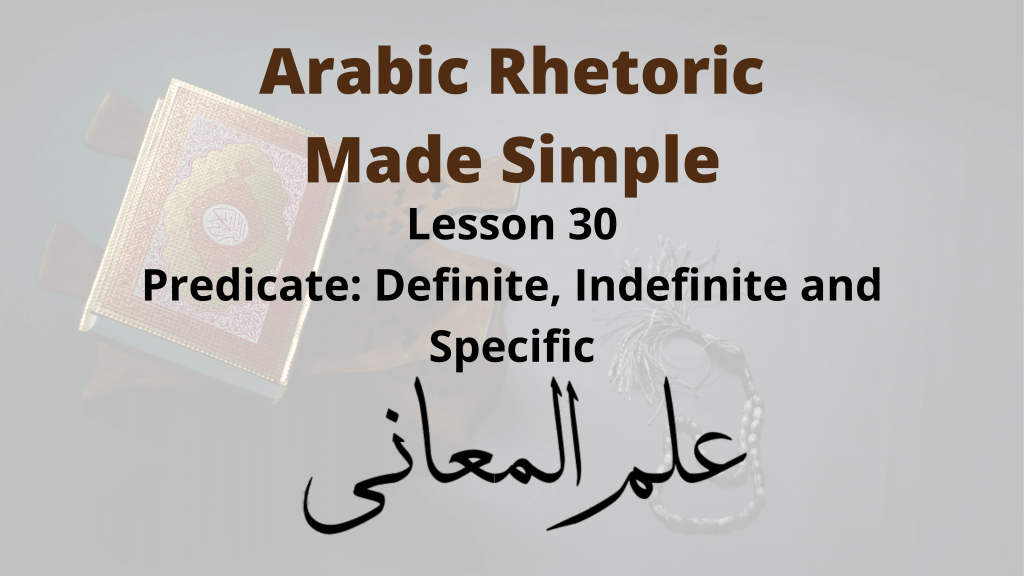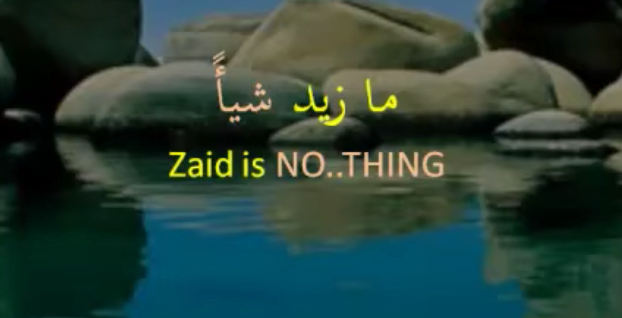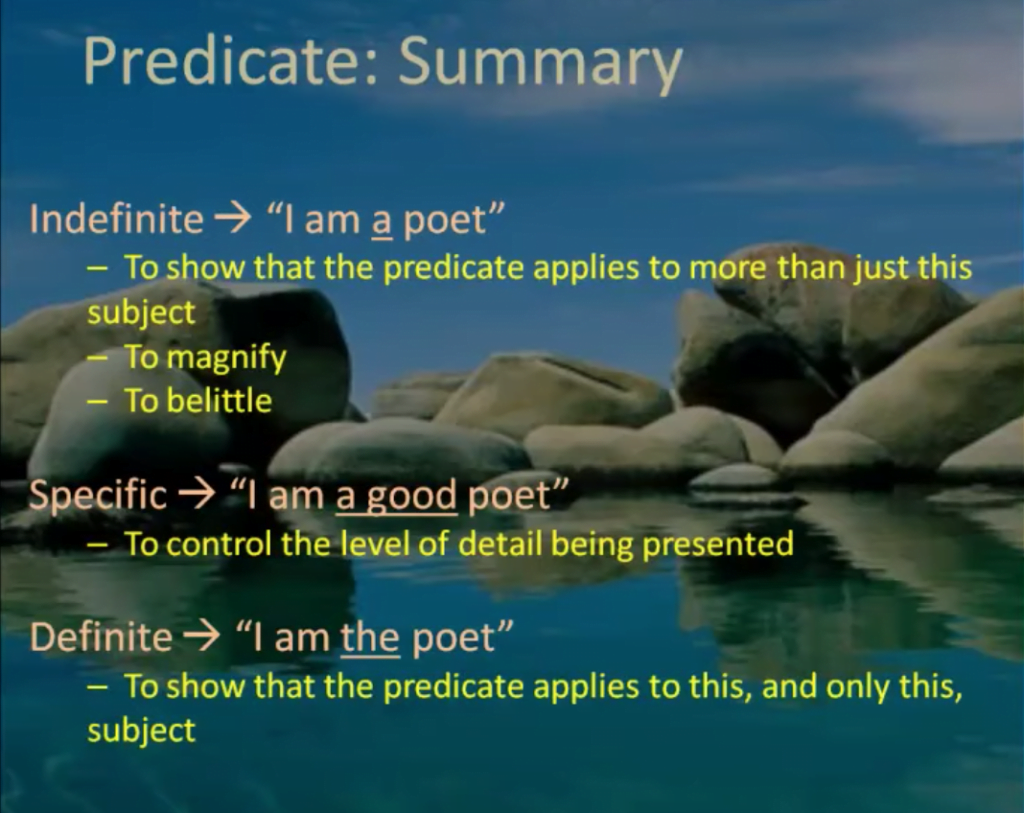In this lesson on Balagha, we are going to talk about why the predicate of an Arabic sentence comes definite, indefinite and specific. And the effects this has on the balagha of the sentence.

An example of an indefinite predicate is:

Notice that both the predicates عليم and حكيم are indefinite.
An example of a specific predicate is:

Notice that the predicate رجل عالم is indefinite but at least it is somewhat specific because if we say “Zaid is a man”, there are many men in the world. But if we say “Zaid is a knowledgeable man”, there are a lot fewer of those in the world. We are being a lot more specific now, although still indefinite.
Finally, an example of a definite predicate is:

Notice that the predicate عيش الاخرة is definite.
Remember that usually the subject of a sentence will be definite, but sometimes it can be brought indefinite for certain reasons.
Now the predicate of a sentence is different. It can just as well be indefinite, specific or definite. Let’s take a look at each of these in turn.
Table of Contents
Indefinite
We will start with indefinite.
Avoid Restriction
One of the reasons the predicate of an Arabic sentence is indefinite is to avoid restriction. What we mean by that is if we make the predicate definite and we say أنا الشاعر, this means “I am the poet”. Here we are doing restriction because we are basically saying that “I am the one and only poet”, i.e. I am the poet.
But if we make the predicate indefinite and we say أنا شاعر, this means that “I am a poet”. Here we haven’t achieved any restriction.
Magnify
Another reason to make the predicate indefinite is to magnify it. In other words, make it seem more powerful and full of awe. Magnifying a word through something like indefiniteness is called تفخيم in balagha.
For example:

The predicate is بلغ (message) and it is indefinite. What we achieve from this indefiniteness is a power and magnification. This doesn’t always come through in the translation. But you can try.
For example: “This is a powerful message for humanity”. Or you can say “This is a message for humanity truly worthy of consideration”, something along those lines.
The word بلغ wasn’t made indefinite in this sentence specifically to achieve magnification. The word was supposed to be indefinite anyway. But magnification is a by-product of this indefiniteness. Actually, predicates aren’t the only place indefiniteness can provide magnification. It can happen in subjects and basically anywhere in a sentence.
Belittle
And finally a reason to make the predicate indefinite is the complete opposite of magnification. It is to belittle something. I.e. make it seem small and insignificant. Magnification is called تفخيم. Belittlement is called تحقير which is also a common topic in balagha.
For example:

Notice again that the predicate شيئًا is indefinite and it is giving us belittlement. Just like magnification, this doesn’t always come out in translation. In fact, personally I would just translate the belittlement in this sentence by putting emphasis on the word “nothing”. Zaid is NO..THING.
Also, just like magnification, the word شيئًا was supposed to be indefinite in this sentence anyway so we are achieving belittlement as a by-product.
Again, just like magnification indefiniteness can help us achieve belittlement anywhere in a sentence. It doesn’t have to be in the predicate.
Specific
Now we will see why you would make the predicate specific.
There are many ways to make the predicate specific. You can use adjectives, idhafa, prepositional phrases, objects, adverbs, haal and so on. All of these things help further qualify the predicate. In other words, they add more and more detail to the sentence.
It is no secret why you would make the predicate more or less specific. It is quite obvious that the more specific you get or the more details you add, the more information you are conveying. The less specific you get or the fewer details you add, the less information you are conveying. It is as simple as that.
Definite
Now we will see why you would make the predicate definite.
Basically, your listener knows about the subject and he knows about the predicate, but he doesn’t necessarily know that the predicate applies to the subject.

For example, if someone has heard about Muhammad (peace be upon him) but he doesn’t know about who he is, we say محمّد نبيّنا (Muhammad is our prophet).
On the other hand, if someone knows we have a prophet, but he doesn’t know who that prophet is, we say محمّد نبيّنا (Our prophet is Muhammad).
The first thing we have achieved is that we have told the listener that Muhammad (peace be upon him) is our prophet, or that our prophet is Muhammad (peace be upon him). So we gave him some new information. But depending on how we make the predicate definite, we can also achieve a second benefit, which is the restriction we talked about earlier.
When we say محمّد نبيّنا, the predicate نبيّنا is definite, meaning we have one and only one prophet, and it is Muhammad (peace be upon him). Similar to the example where we saw “I am the poet” it would be “Muhammad (peace be upon him) is the prophet of ours”.
Summary
In summary:

- Proceed to next lesson: Hastening the Predicate and Delaying the Subject
- Return to index page: Intro to Ilm Ul-Ma’ani
- Start free lessons: Sign Up for Free Mini-class